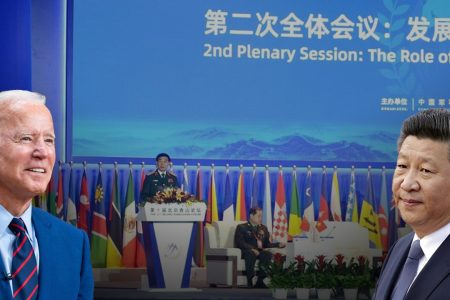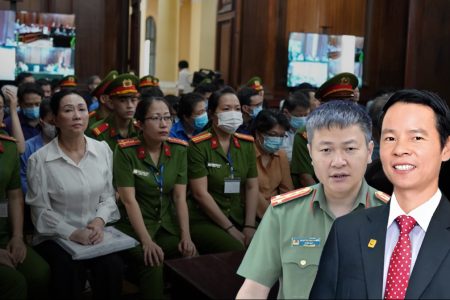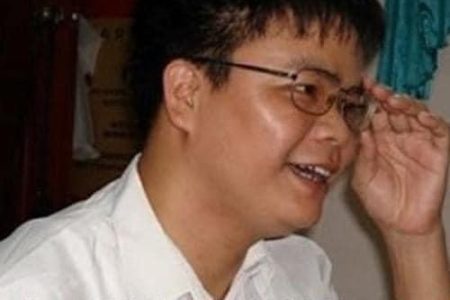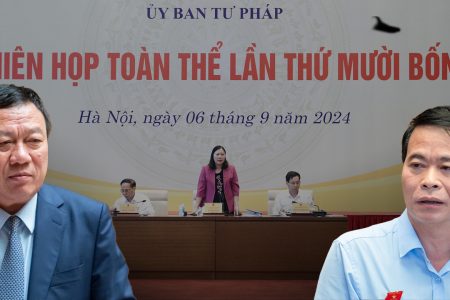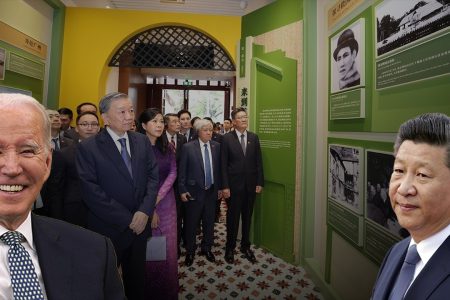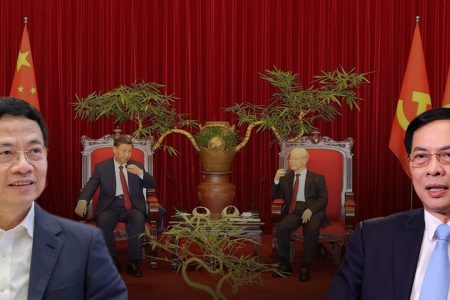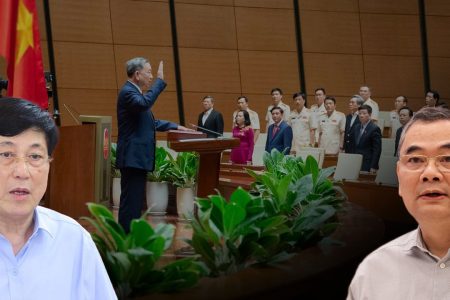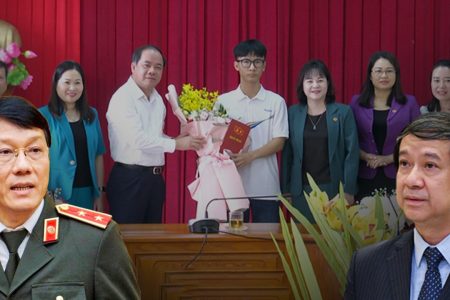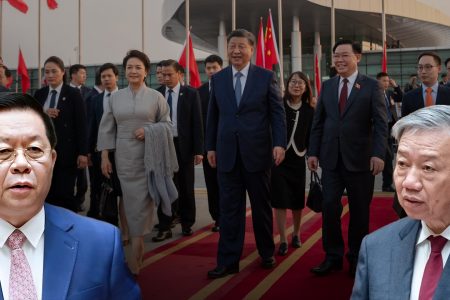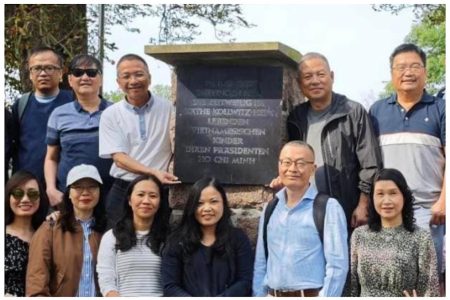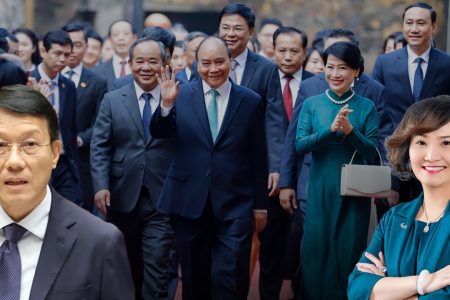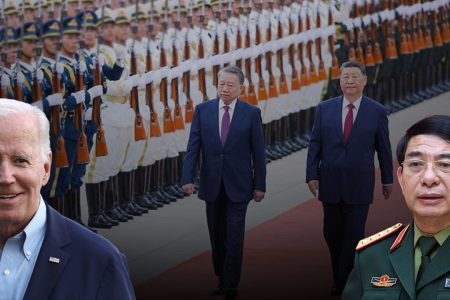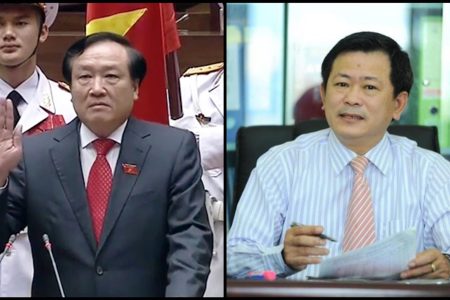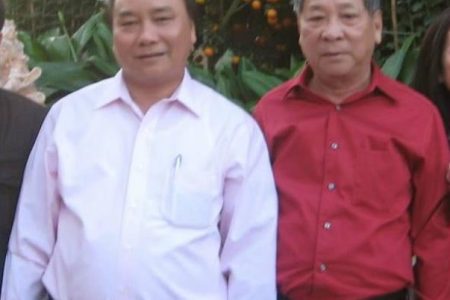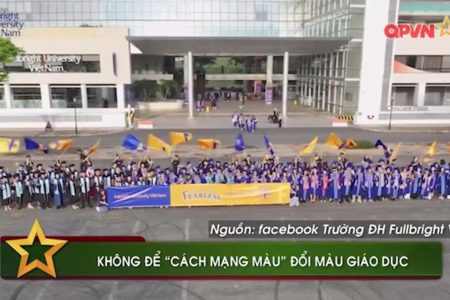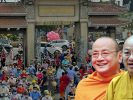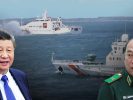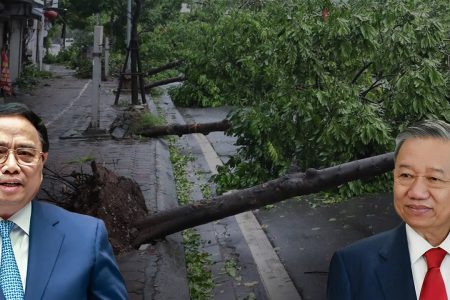Most Vietnamese people do not know that the slogan “Independence – Freedom – Happiness” proposed by Ho Chi Minh originated from the Three Principles of the People of Sun Yat-sen – the leader of the Chinese Nationalist Party, with the three most basic elements: national independence, civil rights and freedom, and people’s livelihood and happiness.
That said, it is inevitable that the Vietnamese Communist Party, as well as their army, are influenced by the Communist Party of China, as well as the Chinese state. However, Beijing has shown many unusual signs that they are deeply interfering in the internal affairs of Vietnam’s senior leaders. And that is difficult to accept.
Recently, Beijing appointed He Wei as the new Chinese Ambassador to Hanoi, replacing Xiong Bo whose 6-year term ended.
He Wei is the 19th Chinese Ambassador to Vietnam since Vietnam and China established diplomatic relations in 1950. Notably, he used to work at the Chinese Embassy in the Philippines – a country that is strongly “confronting” China in the South China Sea.
According to the South China Morning Post, on September 13, in a speech related to Vietnam, at Noi Bai airport, upon arriving in Hanoi, the new Chinese Ambassador emphasized:
“Vietnamese leaders need to ‘persist in controlling differences’ between the two countries, to strengthen confidence in the Socialist system, and be determined to work together and cooperate.”
At the same time, he said that he hopes to work with the Vietnamese side to create and help the bilateral relationship become a model of good neighborliness and cooperation that benefits both countries.
Why did He Wei have to note the need to “persist in controlling differences” when making a statement to the Vietnamese leadership?

Chinese President Xi Jinping once emphasized the so-called “community of common destiny, shared future” between the two countries. However, the goals of the two countries, which have similar political systems, are not compatible. That is the issue of sovereignty in the South China Sea, where Beijing claims full sovereignty, making Hanoi uncomfortable.
The message of new Ambassador He Wei about controlling differences between Hanoi and Beijing is probably to reiterate the statements of Xi Jinping. Previously, Xi had repeatedly emphasized the need for the two countries to “resolve” or “reasonably manage differences.”
In the Vietnam-China Joint Statement, after To Lam’s visit to China, the issue of “better” resolution of differences was mentioned.
According to observers, the recent actions and reactions of Vietnamese military generals, such as the National Defense Television Channel posting a video accusing Fulbright University Vietnam of plotting a “color revolution.” A few days later, the channel deleted the video.
However, on September 11, the Facebook account with a blue tick of the Chinese Consulate General in Da Nang reposted the aforementioned “color revolution” video. This shows that Beijing seems to be expressing its support for the Vietnamese Communist Party’s Central Committee and its Commission for Propaganda and Education, which are controlled by the military.
It is not yet clear why the Chinese Consulate General posted the video. However, this action was taken at a time when the new Chinese Ambassador He Wei was about to take office; and General Phan Van Giang had just visited the US, and General Secretary cum State President To Lam was about to visit the US this September.
Is this a reminder, or a warning from Beijing to Vietnam, about its ideological stance, as well as the issue of “community of common destiny” – a golden hoop that Chinese leaders are trying to put on the heads of Vietnamese leaders?
Tra My – Thoibao.de



